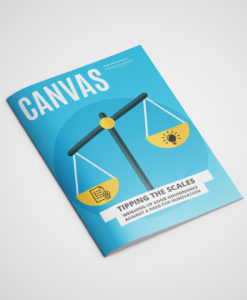
Take a closer glimpse into the people at Saxton Bampfylde and our global partners with our regular team insight feature.
Past, present and future
I am a researcher and partner at Saxton Bampfylde; a role which involves speaking to incredibly interesting people across the commercial, public and non-profit sectors. It’s a huge honour to build relationships and be part of the process which affords some of the most extraordinary leaders the opportunity to experience a new challenge where they can make a significant impact.
I also have the privilege of working closely with our social impact practice group, which I love as our work in this space is what really drew me to Saxton Bampfylde. Having completed an MA in Humanitarianism and Conflict Response I wanted to work in an organisation with unwavering values and somewhere committed to having a positive impact; I’m lucky to have found that here and to be able to work with clients with a similar outlook.
Rainy day dreams
Possibly too much of my time is spent finding new coffee shops to explore, and whenever I land in a new city this tends to be my first task. Conveniently, my favourite city in the world is Seattle, well known for its coffee and relentless rain! So, my perfect rainy day afternoon would be spent in a small café in the Pacific North West, with a flat white, a good book in hand, and lots of people-watching.
True passion
It seems almost impossible to pick just one thing which I am deeply passionate about, although right now I am closely following the debates around women’s reproductive healthcare. Developments (setbacks) currently playing out in the USA have shone a light on this over the past few months, but globally a woman’s ability to access adequate healthcare is all too often restricted. It feels like we may be approaching a critical juncture here, and as such we all need to be passionate about ensuring women have the freedom to make their own decisions.
Who – dead or alive – do you view as a particularly inspiring leader, and why?
I’ve always been particularly interested in Eva Peron; a true humanitarian and feminist. Her unwavering commitment to increasing equality, human rights, and female suffrage throughout her political career is something I find hugely inspirational. Indeed, I find her short life to be wholly fascinating.
Sector view – sum up your sector in three words
Evolving, ambitious, reflective
What learnings can charities take from other sectors as they work to ensure good governance is balanced with finding an innovative approach?
Increasingly in the social housing sector we are seeing residents acting as Non-Executive Directors on the group boards. I feel that a similar drive amongst UK charities and INGOs, in which the intended benefactors have their voices heard at the highest level of an organisation, could help to ensure good governance with increased accountability. Moreover, bringing this diverse range of voices to the decision-making table can encourage charities to view challenges from an entirely different perspective. Listening to empowered local actors and/or service users could be one tool to balance the tension between the need for good governance whilst adapting and moving forward.
What steps should charities be taking to ensure they are operating in an open and transparent way with their supporters?
For numerous reasons the non-profit sector is facing demands for transparency at an unprecedented level, acting in an open manner is now considered a pre-requisite and simply making annual accounts available online is not enough. Notwithstanding this, we must also be cautious that excess resources are not unduly directed to transparency implementation at the expense of an organisation’s purpose.
As a sector, leaders must be proactive and engaged in concerns around spending and their actions. There is a need to be confident in the efficacy of programmes and discuss success; be open about staff salaries and then lead the conversations around this; engage with the media and donors to promote solidarity around campaigns. Of course there are risks to this approach, but fundamentally charities must be willing and able to justify their decisions to donors.
